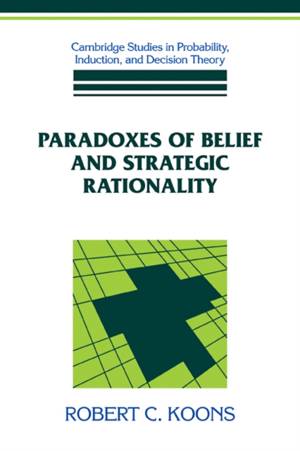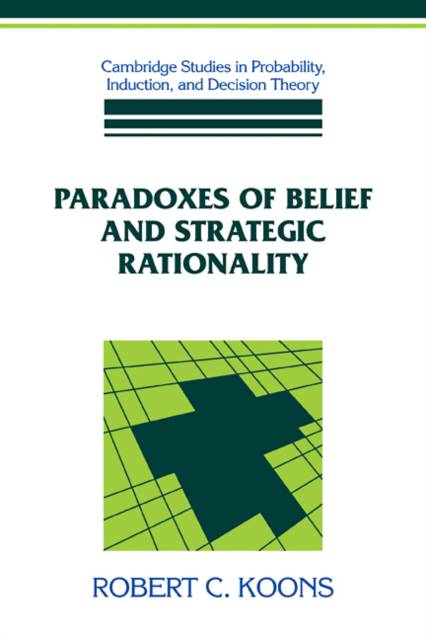
Je cadeautjes zeker op tijd in huis hebben voor de feestdagen? Kom langs in onze winkels en vind het perfecte geschenk!
- Afhalen na 1 uur in een winkel met voorraad
- Gratis thuislevering in België vanaf € 30
- Ruim aanbod met 7 miljoen producten
Je cadeautjes zeker op tijd in huis hebben voor de feestdagen? Kom langs in onze winkels en vind het perfecte geschenk!
- Afhalen na 1 uur in een winkel met voorraad
- Gratis thuislevering in België vanaf € 30
- Ruim aanbod met 7 miljoen producten
Zoeken
€ 47,95
+ 95 punten
Uitvoering
Omschrijving
The purpose of this book is to develop a framework for analyzing strategic rationality, a notion central to contemporary game theory, which is the formal study of the interaction of rational agents, and which has proved extremely fruitful in economics, political theory, and business management. The author argues that a logical paradox (known since antiquity as "the Liar paradox") lies at the root of a number of persistent puzzles in game theory, in particular those concerning rational agents who seek to establish some kind of reputation. Building on the work of Parsons, Burge, Gaifman, and Barwise and Etchemendy, Robert Koons constructs a context-sensitive solution to the whole family of Liar-like paradoxes, including, for the first time, a detailed account of how the interpretation of paradoxial statements is fixed by context. This analysis provides a new understanding of how the rational agent model can account for the emergence of rules, practices, and institutions.
Specificaties
Betrokkenen
- Auteur(s):
- Uitgeverij:
Inhoud
- Aantal bladzijden:
- 192
- Taal:
- Engels
- Reeks:
Eigenschappen
- Productcode (EAN):
- 9780521100595
- Verschijningsdatum:
- 29/01/2009
- Uitvoering:
- Paperback
- Formaat:
- Trade paperback (VS)
- Afmetingen:
- 152 mm x 229 mm
- Gewicht:
- 290 g

Alleen bij Standaard Boekhandel
+ 95 punten op je klantenkaart van Standaard Boekhandel
Beoordelingen
We publiceren alleen reviews die voldoen aan de voorwaarden voor reviews. Bekijk onze voorwaarden voor reviews.









